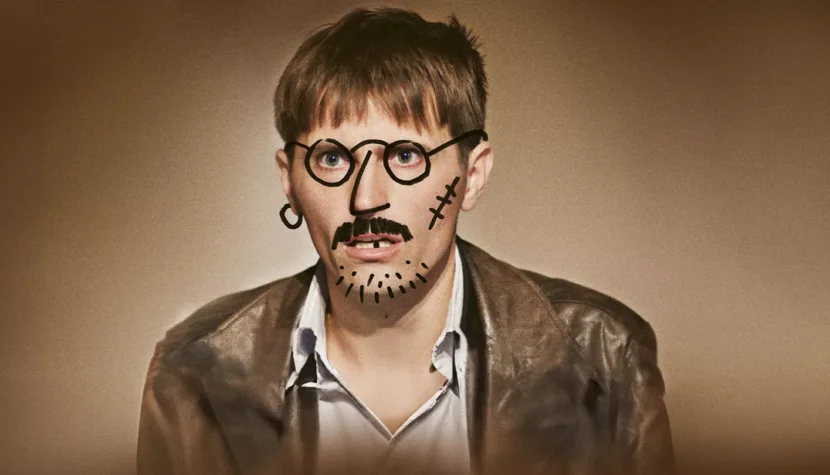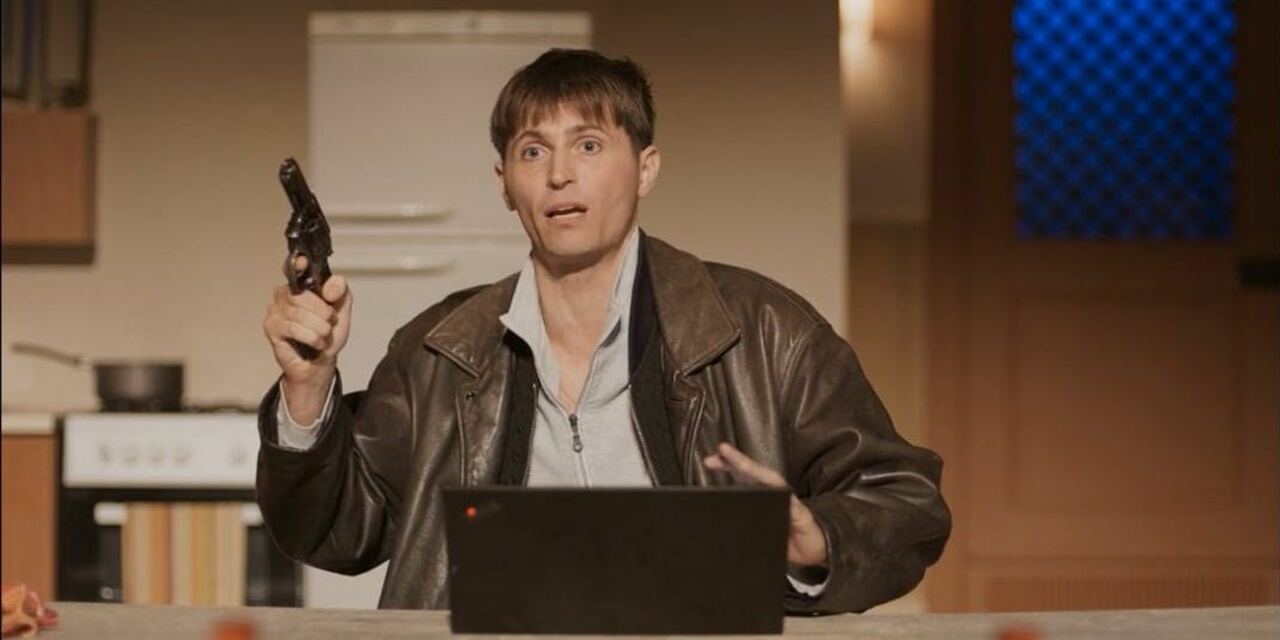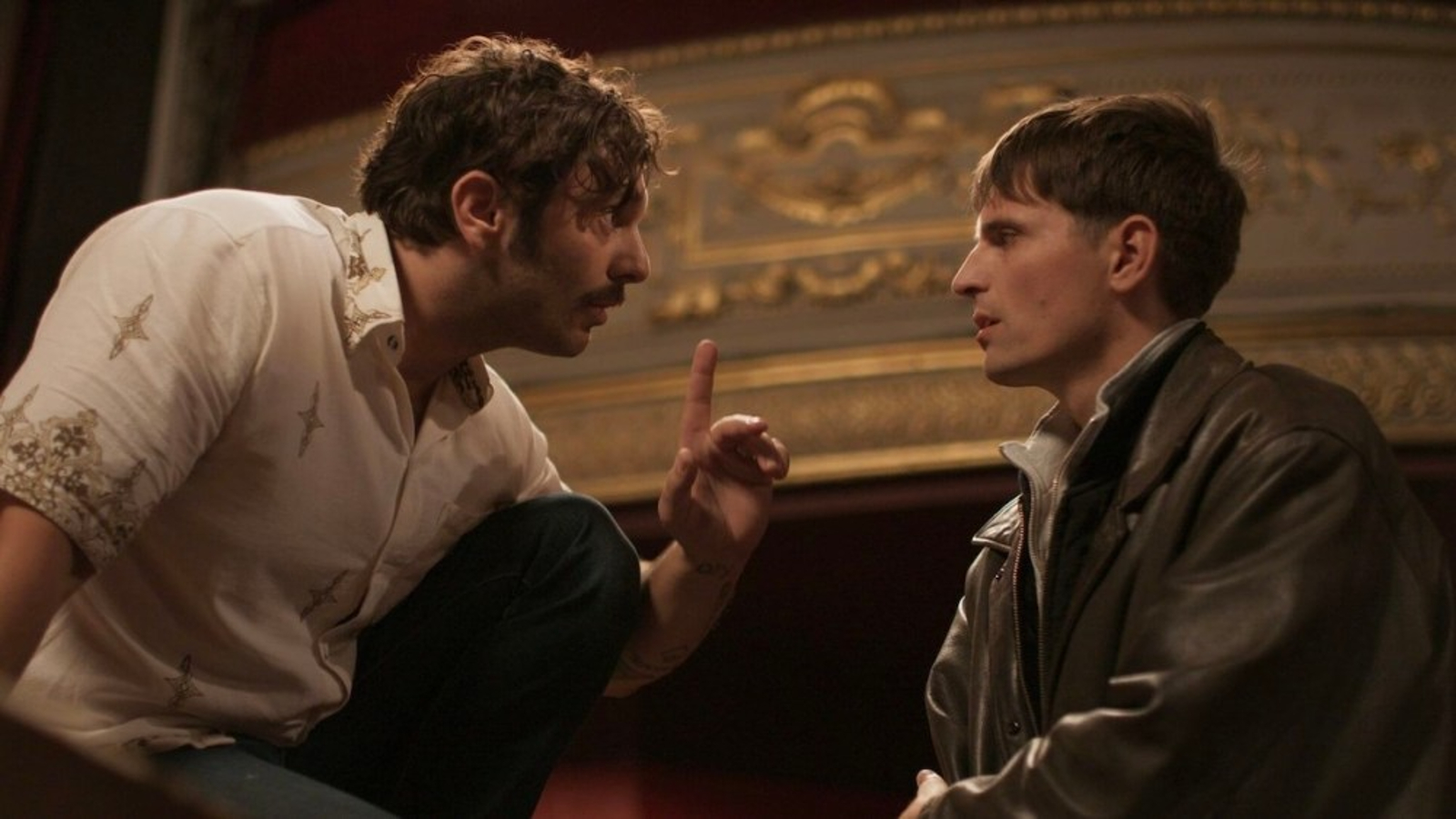YANNICK. Come Up With Something Better

We’ve all found ourselves in such a situation at some point. Theater or cinema – it doesn’t matter if it’s serious arthouse or a school play. What’s important is that we don’t like it. And we really don’t like it. We fidget in our seats, squirm with embarrassment, and eventually start looking around the room for empathetic glances from our fellow sufferers. Anything to avoid looking at the screen or stage. Some people eventually cut their own suffering short and leave the room. Others bravely stay put, partly out of a sense of duty and partly because they’ve invested time and savings into the theater outing. The titular Yannick doesn’t belong to either of these groups. Yannick decides to take matters into his own hands.
The starting point is simply banal: a man interrupts the performance and starts a shouting match with the actors. He compares going to the theater to visiting a restaurant, demanding to speak with the “chef.” An idea suitable for at most a 20-minute short? Quentin Dupieux, the author of cult films like Rubber and the wonderful Mandibules, manages to extract the absolute maximum from such a concept. He builds successive layers of absurdity: soon, merely expressing his opinion is no longer enough for Yannick. He pushes his rebellion further, crossing more boundaries. He decides to “fix” the evening with a firearm – taking the actors hostage and forcing them to change the repertoire, inadvertently fulfilling every critic’s fantasy. If you don’t like it, then come up with something better.

“I am Madame Bovary,” Gustave Flaubert provocatively declared when asked where he drew inspiration for his most famous literary character. Quentin Dupieux, keeping all proportions, could say the same in the context of Yannick. What connects him with the protagonist is primarily a critical attitude toward exalted, pompous art. “If you think I take myself seriously, then as an artist I’ve failed,” he admitted with disarming honesty in an interview for the online magazine FilmStage. The Frenchman has found his niche in absurd comedy, set within self-referential frameworks. His films are certainly not for everyone – and it’s not just about the specific sense of humor, but also about the complex, multi-layered narrative structures. However, it is hard to deny their inventiveness and broad sense of unpretentiousness. Dupieux has been proving for many years that there’s nothing wrong with empty laughter. The purpose of cinema, theater, and literature can be entertainment itself – alternately silly and intelligent. For Yannick, as for the creator of Deerskin, the primary goal is to provide good fun, the joy of storytelling – and both the protagonist and the director deliver this task splendidly.
The metatextual context is present in Yannick on another, extremely important level. Since the beginning of his cinematic journey, Dupieux has been fond of telling stories about us, the viewers. Rubber is remembered today mainly for, well, the killer tire, but the parallel storyline’s protagonists are representatives of the “audience,” who gather on a hill to watch and comment on the unfolding events, only to die from food poisoning. No one is safe in Quentin Dupieux’s universe. Death, wielding the blade of satire, can catch anyone. In Yannick, not only the actors but also the viewers become hostages of the main character. Initially hostile towards him, they soon fall under the charm he exudes. Before their eyes, a kind of performance unfolds – an engaging, fully improvised monodrama, much funnier than the play presented on stage. Before we know it, we too are on Yannick’s side – craving more jokes, bon mots, and plot twists, dependent on the actions of the mentally unstable protagonist. Such is our nature as viewers, Dupieux seems to say: we will always follow what is most interesting. Wherever it may lead us.

The director of Wrong Cops is one of the hottest names at this year’s New Horizons festival. In Wrocław, you can watch as many as three of his films. Interestingly, each came to Poland from a different international festival. Yannick premiered at the Locarno festival, Daaaaaalí began its festival circuit in Venice, and Second Act opened the Cannes film festival. Dupieux‘s impressive creative output, comparable perhaps only to Hong Sang-soo’s activity, fortunately, does not affect the quality of his films. Of course, there are better and worse ones, but all teem with creativity, surprise with unconventional narrative solutions, and maintain a consistently high level. Yannick is the best example of this trend: another solid entry in the filmography of the French king of absurdity. And if you don’t like it, well – you can always come up with something better.

